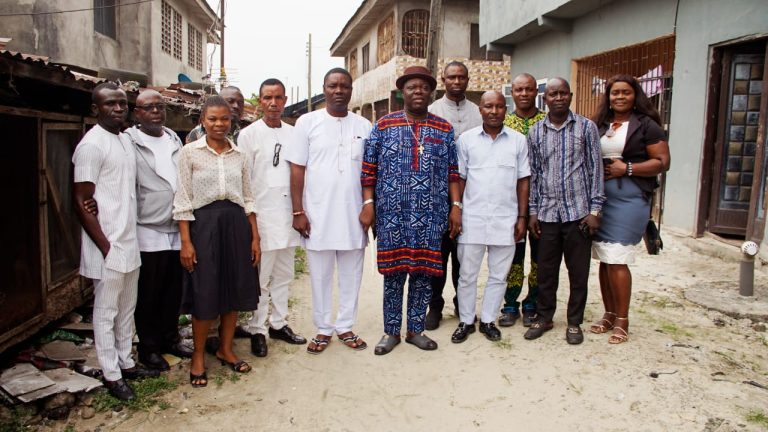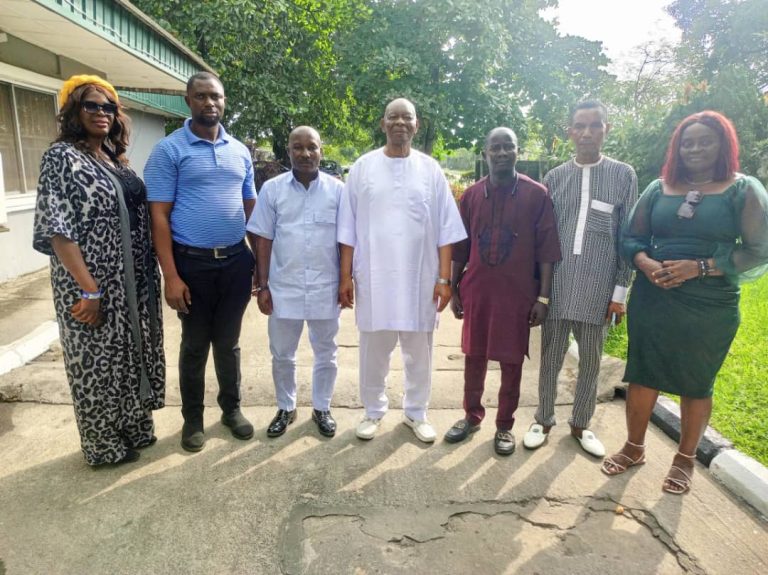
By DADA AYOKHAI
Nobody anticipated it. Yet when it arrived, it struck like a thunderbolt, catching everyone off guard.
The three-member panel of the Edo State Governorship Election Petition Tribunal recently, in their wisdom, decided to shift the Tribunal’s location to Abuja.
The petition lodged by Bar Asue Ighodalo, the Edo PDP gubernatorial candidate against the INEC and APC, had become fraught with tension, raising serious security issues each time the Tribunal convened.
Each session saw reports of security breaches, with thugs targeting opponents, lawyers, and adversaries, creating an atmosphere far from ideal.
Although the Tribunal did not specify its reasons for the relocation, observers have offered various interpretations, reflecting a depth of insight into this pivotal decision.
While the decision to relocate the Tribunal to Abuja was still sinking in, the two dominant political parties, through their spokespersons, were busy pontificating about the cause of the relocation, overlooking the glaring security breaches and lapses surrounding the Tribunal’s sessions in Benin.
Given that the Tribunal’s decision is irrevocable, it is time to examine the social and economic implications of the action
One of the benefits of the movement is the huge relief to road users, particularly those who frequently travel along the busy Sapele Road opposite the state High Court.
The premises of the state High Court, Benin, used to serve as the venue of the Tribunal’s sitting
Each session requires a section of the Sapele Road to be closed and also manned by armed policemen. The resulting lockdown is better imagined than experienced. A journey of a few minutes, at most an hour, suddenly runs into multiple hours as motorists sweat it out trying to escape the mayhem
Likewise, the adjacent streets are not sparred. Party thugs wielding dangerous weapons create a climate of intimidation and harassment of lawyers, and anyone passing by.
On the flipside, hotels that once thrived from accommodating party loyalists and legal counsels will now face challenges with the relocation of the Tribunal to Abuja.
Hoteliers who enjoyed full bookings will need to navigate these economic changes.
Similarly, petty traders who relied on the influx of attendees for their livelihoods will feel the gravity of the economic downturn, as their sales of food, drinks, and other items diminish.
Also, the Tribunal relocation to Abuja places financial strains on both the PDP and the APC, who must now spend heavily on logistics and accommodation for their legal teams, witnesses, and supporters.
For the Edo APC and Sen Monday Okpevbolo, whose victory is being challenged, state funds will inevitably be utilized to cover these expenses—from logistics to hotel costs—highlighting the concerns of observers regarding the APC-controlled state government’s rising expenditure.
Ultimately, the relocation of the Tribunal will impact state funds, blurring the lines between private and public resources.
Nobody anticipated it. Yet when it arrived, it struck like a thunderbolt, catching everyone off guard.
The three-member panel of the Edo State Governorship Election Petition Tribunal recently, in their wisdom, decided to shift the Tribunal’s location to Abuja.
The petition lodged by Bar Asue Ighodalo, the Edo PDP gubernatorial candidate against the INEC and APC, had become fraught with tension, raising serious security issues each time the Tribunal convened.
Each session saw reports of security breaches, with thugs targeting opponents, lawyers, and adversaries, creating an atmosphere far from ideal.
Although the Tribunal did not specify its reasons for the relocation, observers have offered various interpretations, reflecting a depth of insight into this pivotal decision.
While the decision to relocate the Tribunal to Abuja was still sinking in, the two dominant political parties, through their spokespersons, were busy pontificating about the cause of the relocation, overlooking the glaring security breaches and lapses surrounding the Tribunal’s sessions in Benin.
Given that the Tribunal’s decision is irrevocable, it is time to examine the social and economic implications of the action
One of the benefits of the movement is the huge relief to road users, particularly those who frequently travel along the busy Sapele Road opposite the state High Court.
The premises of the state High Court, Benin, used to serve as the venue of the Tribunal’s sitting
Each session requires a section of the Sapele Road to be closed and also manned by armed policemen. The resulting lockdown is better imagined than experienced. A journey of a few minutes, at most an hour, suddenly runs into multiple hours as motorists sweat it out trying to escape the mayhem
Likewise, the adjacent streets are not sparred. Party thugs wielding dangerous weapons create a climate of intimidation and harassment of lawyers, and anyone passing by.
On the flipside, hotels that once thrived from accommodating party loyalists and legal counsels will now face challenges with the relocation of the Tribunal to Abuja.
Hoteliers who enjoyed full bookings will need to navigate these economic changes.
Similarly, petty traders who relied on the influx of attendees for their livelihoods will feel the gravity of the economic downturn, as their sales of food, drinks, and other items diminish.
Also, the Tribunal relocation to Abuja places financial strains on both the PDP and the APC, who must now spend heavily on logistics and accommodation for their legal teams, witnesses, and supporters.
For the Edo APC and Sen Monday Okpevbolo, whose victory is being challenged, state funds will inevitably be utilized to cover these expenses—from logistics to hotel costs—highlighting the concerns of observers regarding the APC-controlled state government’s rising expenditure.
Ultimately, the relocation of the Tribunal will impact state funds, blurring the lines between private and public resources.




